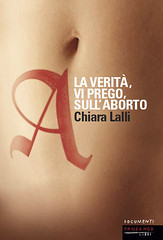Stanley Kubrick, intervistato da Eric Norden nel settembre del 1968:
Ciò che è più terrificante riguardo all’universo non è il fatto che ci sia ostile ma bensì che ci sia indifferente; ma se riusciremo a venire a patti con questa indifferenza e ad accettare le sfide della vita entro i confini della nostra mortalità – qualunque sia la distanza cui l’uomo sarà in grado di spostarli – la nostra esistenza in quanto specie potrà avere un significato e un compimento genuini. Per quanto vaste siano le tenebre, dobbiamo procurare noi stessi la luce.Nell’originale inglese:
The most terrifying fact about the universe is not that it is hostile but that it is indifferent; but if we can come to terms with this indifference and accept the challenges of life within the boundaries of death – however mutable man may be able to make them – our existence as a species can have genuine meaning and fulfillment. However vast the darkness, we must supply our own light.


























7 commenti:
Kubrick, 1968? Beh, è un pensiero che ha parecchi padri: in primis lui e lui. :)
Dov'è che dice che il monolite e gli ominidi rappresenterebbero:
"L'idea degli atei come degli scimmioni primitivi all'oscuro della Storia e della Verità, che guardano ciò che non capiscono"?
Non riesco a trovarlo... :)
Joe: :-D
E' un pensiero profondamente lovecraftiano.
Fabristol: lovecraftiano nel senso delle convinzioni personali di H.P. Lovecraft, immagino, non nel senso delle opere narrative di Lovecraft (dove l'universo sembra decisamente più ostile che indifferente...).
In effetti, l'apertura di "The Call of Cthulhu" costituisce l'antitesi quasi perfetta della citazione di Kubrick, al punto che a tratti sembra riecheggiarla capovolta:
"The most merciful thing in the world, I think, is the inability of the human mind to correlate all its contents. We live on a placid island of ignorance in the midst of black seas of infinity, and it was not meant that we should voyage far. The sciences, each straining in its own direction, have hitherto harmed us little; but some day the piecing together of dissociated knowledge will open up such terrifying vistas of reality, and of our frightful position therein, that we shall either go mad from the revelation or flee from the deadly light into the peace and safety of a new dark age."
Sì intendo come pensiero lovecraftiano ma che in parte si riflette nei suoi racconti.
Bè dipende anche come lo vedi. Per Lovecraft come per Leopardi l'universo è indifferente alle nostre sorti. Le stesse divinità cosmiche lovecraftiane (Cthulhu, Shub-niggurat ecc.) sono indifferenti alle nostre sorti. non ci sono ostili. Ostilità è un termine che denota malvagità, un'azione attivamente volta a produrre del male. Cthuhlu pur essendo un alieno di materia organica è un essere trascendente per gli uomini, ma le sue intenzioni ci sono precluse e la nostra sorte gli è indifferente.
Questo per quanto riguarda i Grandi Antichi, poi ovviamente se vai a vedere gli altri racconti dell'orrore.
Beh Billy, possiamo andare ancora piu' indietro nel tempo: Democrito e il suo 'il caso e la necessità' è il primo forte sostenitore del meccanicismo ;-)
Posta un commento